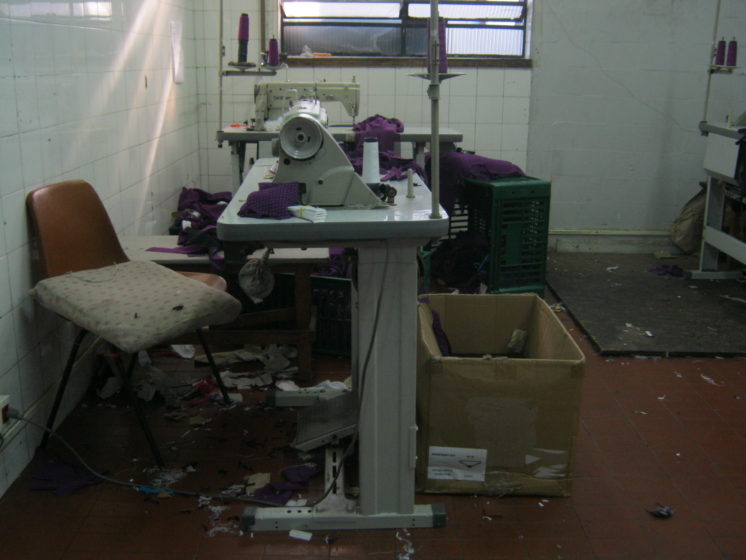Spanish fast fashion giant Zara, an Inditex brand, has been found to source clothes from Brazilian workshops with modern slavery conditions but fought against sanctions in court – showing how corporations seek to avoid liability by hiding behind complex supply chains.
 Photo: Repórter Brasil
Photo: Repórter BrasilIn August 2011, Brazilian federal government inspectors found 15 immigrants working and living under deplorable conditions in two small workshops in São Paolo. Labourers had to work for long days – up to 16 hours – and were restricted in their freedom of movement. The inspectors later concluded that the conditions in the two workshops could be classified as “analogous to slavery”.[1]
Sanctions for modern slavery
The workers were sewing clothes for Zara, a brand of Inditex, the world-renowned fast fashion pioneer from Spain. The workshops where the abuses took place were subcontracted by Zara’s supplier.[2] According to the government inspection report, Zara Brasil exercised directive power over the supply chain and therefore should be seen as the real employer and should be held legally responsible for the situation of the workers.
The company faced several sanctions: it was fined for 48 different infractions found during the inspection of the workshops; and the company risked entering the so-called ‘dirty list’ of slave labour – a public registry of individuals or enterprises caught employing workers under conditions analogous to slavery.
In 2015, Zara Brasil was fined again, this time because it cut ties with almost all the workshops that employed immigrants, legally or not, instead of attempting to improve the conditions for workers who were suffering from modern slavery conditions. This new fine, issued by the Ministry of Labour and Employment, was justified because of Zara Brasil’s discriminatory working patterns.[3]
Blaming the contractor
Zara Brasil challenged these sanctions in court, arguing that the subcontracting arrangement was not authorised by them, that Zara Brasil was not aware of it (implying that it had a deficient monitoring system), and that its contracting party had been deceiving them through their audit reports.[4]
The arguments used in the courtroom, however, contradict the message that Inditex sends to its customers: that it effectively monitors its supply chain, and that customers can be assured that there are no human rights abuses attached to their clothing brand. Zara Brasil eventually lost its case and the consequent appeal, and the case was closed in November 2017.[5]
The litigation strategy used by Zara Brasil is a clear cut example of a company doing everything in its power to escape liability for the human rights abuses found in its supply chain.
[1] André Campos, Martje Theuws and Mariëtte van Huijstee, “From moral responsibility to legal liability?”, (Amsterdam: Stichting Onderzoek Multinationale Ondernemingen (SOMO), 2015), p. 9, https://network.somo.nl/wp-content/uploads/2015/05/From-moral-responsibility-to-legal-liability.pdf (accessed October 30, 2019).
[2] Campos, Theuws and van Huijstee, p. 71.
[3] Campos, André, “Zara corta oficinas de imigrantes e será multada por discriminação,” Repórter Brasil, 5 September 2015, https://reporterbrasil.org.br/2015/05/zara-corta-oficinas-de-imigrantes-e-sera-multada-por-discriminacao/ (accessed October 30, 2019).
[4] Campos, Theuws and van Huijstee.
[5] Lidas, Mais. “Zara é Responsabilizada Por Trabalho Escravo e Pode Entrar Na ‘Lista Suja.’” Brasil Econômico, November 14, 2017. https://economia.ig.com.br/2017-11-14/zara-trabalho-escravo.html (accessed October 30, 2019); Zara Brasil Ltda. v. União 00016629120125020003 + 00089052720145020000 (Tribunal Regional do Trabalho da 2a Região São Paulo November 7, 2017), (accessed October 30, 2019).
